FAQ
Can I receive a refund for unused courses?
At this time, we do not refund courses. However, if you have a team member who registers but does not take the course, that account can be reassigned. Simply contact us about redirecting the course.
Do courses expire?
For as long as the project continues, courses will not expire!
What is my role as an administrator?
As your group or institution’s administrator, you are able to do the following:
Set the access code that all your team members will use to gain entry to the course
Directly invite colleagues to use the course via email
Track team members progress
Track number of courses used
Can I re-do aspects of the course?
All materials remain available through the individual module pages. In modules that have them, you will see buttons that allow you to re-do games and exercises. If you click “Survey Completed” in the Module Status box of any module page, the survey will reappear. (Please note: To review a previously completed survey, please exit and re-enter the module page before clicking the “Survey Completed” link.)
How can I update the contact information for my account?
If you go to your profile page, you can update your account details. This page can also be reached if you click the first box in the dropdown menu under My Account.
Is this where I can update my password?
Who are the collaborators on this project?
The Medical Professionalism Project was created by the (Dis)Honesty Project and the Center for Advanced Hindsight in collaboration with Duke Health. The (Dis)Honesty Project leads the day-to-day management of the Medical Professionalism Project, with guidance and support from its collaborators.
Where can I learn more about these partners?
The Center for Advanced Hindsight is Dan Ariely’s behavioral economics lab at Duke University, an affiliate of the Social Science Research Institute. We are interested in how and why people make a wide range of decisions, and how certain forces influence our thoughts and behavior. Our research focuses on the faulty assumptions of rational decision-making, and strives to unveil how people make decisions in the real world – all kinds of decisions, from what inspires us to work those extra hours, to how much we are willing to spend on black pearls, to what we choose to eat for lunch. Most of our research falls into three decision-making buckets: health, finance, and morality.
Duke Health integrates the Duke University Health System (all of our hospitals and clinics), Duke University School of Medicine, Duke-NUS Medical School, Duke University School of Nursing, Private Diagnostic Clinic (Duke physicians practice), and incorporates the health and health research programs within the Duke Global Health Institute as well as those in schools and centers across Duke University, including the Duke Robert J. Margolis Center for Health Policy. In particular, the Duke Clinical Research Institute assisted in the design and content creation of this course. The Trent Center for Bioethics, Humanities, and History of Medicine has helped disseminate program information across Duke.
The (Dis)Honesty Project hopes to create a safe space where we can explore the complicated truth(s) of the matter, improving our own behavior and that of the world around us. The project is a partnership between Dan Ariely and SALTY Features.





